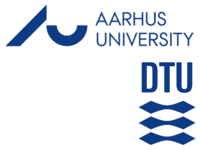
The 29th EG-ICE International Workshop on Intelligent Computing in Engineering brought together international experts working on the interface between advanced computing and modern engineering challenges. Many engineering tasks require open-world resolution of challenges such as supporting multi-actor collaboration, coping with approximate models, providing effective engineer-computer interaction, search in multi-dimensional solution spaces, accommodating uncertainty, including specialist domain knowledge, performing sensor-data interpretation and dealing with incomplete knowledge. While results from computer science provide much initial support for resolution, adaptation is unavoidable and most importantly, feedback from addressing engineering challenges drives fundamental computer-science research. Competence and knowledge transfer goes both ways.
The workshop is intended to be a single-track event focusing on defining strategic aspects of the interaction of computing with engineering challenges. Also, current proposals for supporting engineering challenges according to these aspects will be evaluated and compared. As in previous workshops, the promotion, dissemination and exchange of knowledge and ideas will be supported through discussion periods within each session.

The acronym EG-ICE (European Group for Intelligent Computing in Engineering) was established in 1993 to promote research on the interface between computing and engineering challenges across Europe by encouraging and improving contacts between researchers, fostering research collaboration and enhancing awareness of the latest developments. The group maintains active contact with similar groups in countries outside Europe and encourages participation by industry leaders who aim to increase application of advanced engineering informatics.
To achieve its aims, the group runs a yearly workshop and is active in the promotion, dissemination and exchange of ideas in order to provide effective links between research, industry and teaching. The EG-ICE 2022 workshop is not restricted to engineers. Thus, computer scientists, architects, psychologists and other interested people are encouraged to participate.